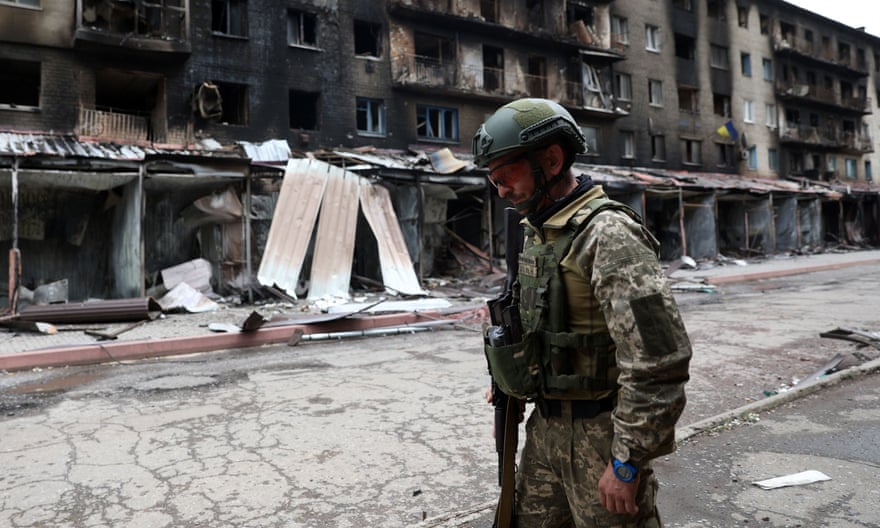Reading and watching the media over the previous 12 months, you could be forgiven for pondering that we face the collapse of civilisation. Now we have a shrinking economic system, a gasoline disaster that will convey on vitality rationing and compelled blackouts, excessive climate occasions, the elevated likelihood of nuclear conflict, and threat of the expansion of a brand new pandemic using on the again of the final. The Doomsday Clock – a logo created by scientists to symbolize the probability of a human-made disaster – locations us at simply 100 seconds earlier than midnight, the closest we’ve been to Armageddon within the mission’s 75-year historical past.
Within the face of those threats, it could be exhausting to take care of a rose-tinted view of the longer term – except, that’s, you’re the Harvard psychologist Steven Pinker. In 2018, his ebook Enlightenment Now argued that our interpretations of reports occasions make us far too gloomy. There has by no means been a greater time to be alive, he mentioned, due to the social, financial, political, technological, and medical advances of the previous 300 years.
On the time of its publication, Pinker’s ebook attracted as much scorn as praise. One frequent criticism was that he had oversimplified advanced topics and uncared for any phenomena which may recommend an absence of progress. Pinker has, nonetheless, tried to deal with lots of the criticisms, and the latest challenges dealing with the world don’t seem to have modified his opinion.
On Radio 4’s Today programme final week, he revisited the arguments of Enlightenment Now to clarify why he believes there are nonetheless causes to stay optimistic in 2022. “Now we have to keep in mind that there’s no legislation of nature that areas unhealthy issues aside,” he mentioned. “Unhealthy issues occur, and they’re going to seem to return in clusters – nevertheless it doesn’t imply that we’re being punished for our collective sins or that we’re in a uniquely harmful second.” He maintains humanity has the instruments to cope with the challenges we face.
There’s definitely one thing comforting about seeing trigger for hope in crises. However do we actually have good grounds for optimism? To search out out, the Observer examines 4 indices of progress and the methods they’ve been affected by latest occasions.
Well being within the time of Covid
The Covid-19 pandemic is the plain place to start out. In keeping with the World Well being Group, greater than 6.4 million have thus far died of the an infection, because the virus emerged. In a pattern of 37 nations, the British Medical Journal discovered all however six had skilled a discount in life expectancy consequently. That’s to not point out the burden of lengthy Covid, which is believed to have an effect on round two million people in the UK alone.

That is definitely a step backwards for international well being. However it’s value noting that Pinker has by no means claimed that we are going to see steady progress with none setbacks. His argument is extra involved with the methods we deal with issues and discover potential options. Did we cope with the menace higher than we’d have been in a position to in years passed by?
The jury continues to be out on the UK authorities’s preliminary response to the disaster. However the fast growth of Covid vaccines is undoubtedly a triumph of scientific progress. In keeping with a latest examine from Imperial Faculty’s Centre for World Infectious Illness Evaluation, the vaccination programme saved at the very least 14 million folks – and doubtlessly as many as 19.8 million – in its first 12 months.
This merely wouldn’t have been attainable in years passed by; all earlier vaccines had taken at the very least 5 years to develop, and initially of the pandemic many scientists believed the potential for creating a brand new one from scratch was naively optimistic. Which may be some reason behind optimism for our skill to cope with future well being threats.
Wealth and happiness
One in all Enlightenment Now’s core arguments is that folks at present are far wealthier than folks in earlier a long time – and that this has resulted in larger life satisfaction, by means of higher consolation, extra free time and higher training. Pinker dismisses the concept inequality is a driver of unrest – it’s every particular person’s absolute wealth that issues, he says, which suggests we don’t want to fret an excessive amount of if a lot of a rustic’s positive aspects in GDP go disproportionately to the richest echelons of society.
The proof for this isn’t fairly as clearcut as Pinker would declare, nonetheless. Recent research by veteran economist Richard Easterlin discovered that China’s and India’s latest financial development have completed little or no for the inhabitants’s general happiness. Extra comprehensively, a study by Małgorzata Mikucka on the Catholic College of Louvain in Belgium analysed life satisfaction in 46 nations from 1981 to 2012. It discovered that a rise in GDP solely led to higher happiness if it was accompanied by decreased inequality and elevated social capital.
None of this bodes nicely for our lives over the following few months and years. The Workplace for Nationwide Statistics has simply reported that the UK’s GDP has shrunk in the second quarter of 2022, suggesting that we’re on the point of a recession, whereas the common wage is about to fall behind inflation by 8% this 12 months – the most important drop in actual wages in over 100 years. And in accordance with the Worldwide Financial Fund, the price of dwelling disaster is prone to widen inequality by hitting the poorest houses hardest.
It’s value remembering that, by the beginning of this 12 months, actual wages had not totally recovered from the 2008 monetary disaster – suggesting that that is greater than a momentary blip in our dwelling requirements.
Conflict and peace
One in all Pinker’s most controversial claims issues our propensity to kill one another. He first made the case that human violence is at an all-time low in The Higher Angels of Our Nature, printed in 2011, after which revisited the thought seven years later in Enlightenment Now.
A lot of Pinker’s argument issues warfare. Utilizing information in regards to the sheer variety of conflicts, their size, the proportion of lives misplaced, and the extent of navy funding, Pinker notes a downward development throughout the centuries. Clearly, there are exceptions – the massive numbers of lives misplaced in each world wars, for one; you possibly can solely attain his conclusion by trying at average numbers across the globe over large time periods.
Pinker argues that numerous forces – such because the rising significance of worldwide commerce, the rise of democracy, and the actions of establishments such because the UN – have made conflict a lot much less fascinating for many leaders, pushing us into the interval recognized by some historians because the “lengthy peace”.

However many different students have questioned these conclusions. One analysis by Aaron Clauset at the University of Colorado in Boulder, for instance, concluded that the “lengthy peace” could be a statistical fluke. It’s attainable for any probabilistic occasions to cluster in sure durations and to vanish in others. For an analogy, take into account what number of occasions you possibly can throw a coin and it lands on tails, regardless of the likelihood being 50:50. You would possibly conclude that the coin is biased – however with extra throws the general frequencies will are likely to steadiness out. In keeping with Clauset’s paper, the “lengthy peace” could also be equally ephemeral.
Russia’s invasion of Ukraine, and rising tensions over Taiwan, have after all positioned the considered international conflict on the entrance of everybody’s minds. We are able to hope that diplomacy will forestall catastrophe, however optimistic historic analyses present chilly consolation when our destiny can rely upon the erratic selections of dictators resembling Vladimir Putin.
The surroundings
With the record-breaking heatwaves this 12 months, and the specter of wildfires sweeping across the UK, it appears like we’re already witnessing the beginning of the local weather emergency – and except we take drastic motion, it is just set to worsen.
Pinker definitely doesn’t deny local weather change, which he acknowledges is a “gargantuan problem”, however he has criticised “eco-pessimism” and the prevalence of what he considers to be alarmist inexperienced messaging. In Enlightenment Now, he describes many environmental successes, such because the discount of water air pollution, the elimination of acid rain and a latest deceleration in deforestation. He factors to information displaying that many nations’ CO2 emissions at the moment are plateauing. For an escape route from catastrophe, he factors to concepts resembling carbon taxing, mixed with a reliance on nuclear energy and applied sciences resembling carbon seize, which entails scrubbing CO2 from energy stations earlier than it’s launched and locking it underground.
Local weather Change is a gargantuan drawback, however the thought it threatens imminent human extinction or destruction of civilization is pernicious. It isn’t what the science says; it is emotionally harmful; & it discourages motion (why hassle if we’re doomed?) https://t.co/oTybFKUKom
— Steven Pinker (@sapinker) August 23, 2021
For sure, the “eco-pessimists” are unimpressed. Applied sciences resembling carbon seize do supply some promise, however their efficacy is unproven. And we can even require sturdy political will, which has been removed from apparent within the years since Pinker’s ebook was printed. A UN report from 2021 discovered most governments have been “nowhere near the extent of ambition wanted to restrict local weather change to 1.5C and meet the targets of the Paris Settlement”, although it’s attainable {that a} drive to scale back dependence on Russian oil and fuel might galvanise efforts to modify to renewables.
Pinker’s optimism depends on the truth that we – and our governments – will act rationally, in accordance with the Enlightenment rules of purpose, science and humanism. Our mixed brainpower might definitely have the capability to resolve the local weather disaster, however to imagine that our flesh pressers will take motion in time – that will require a leap of religion.
David Robson is the writer of The Expectation Impact: How Your Mindset Can Remodel Your Life






